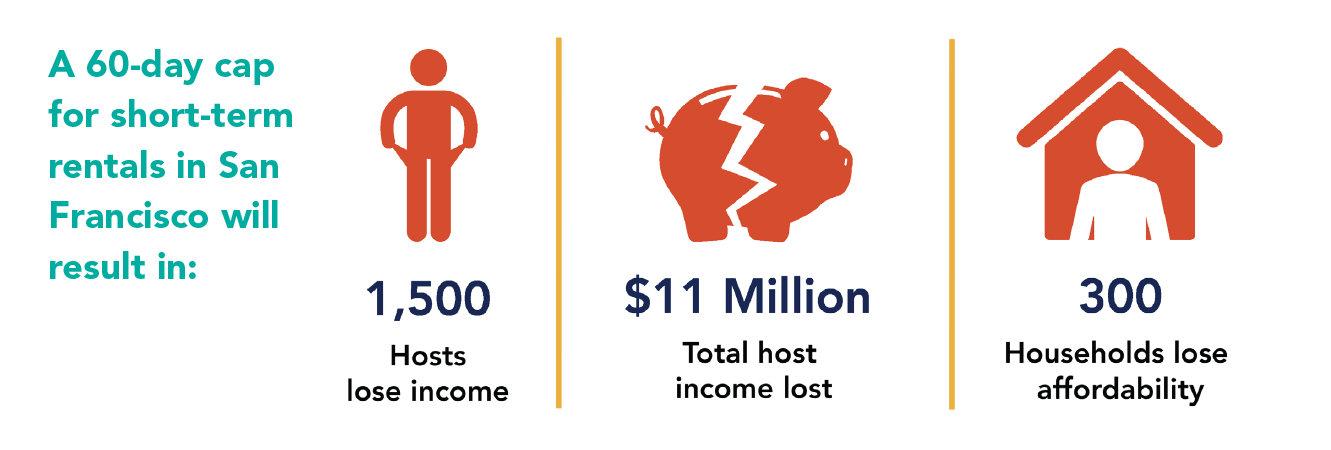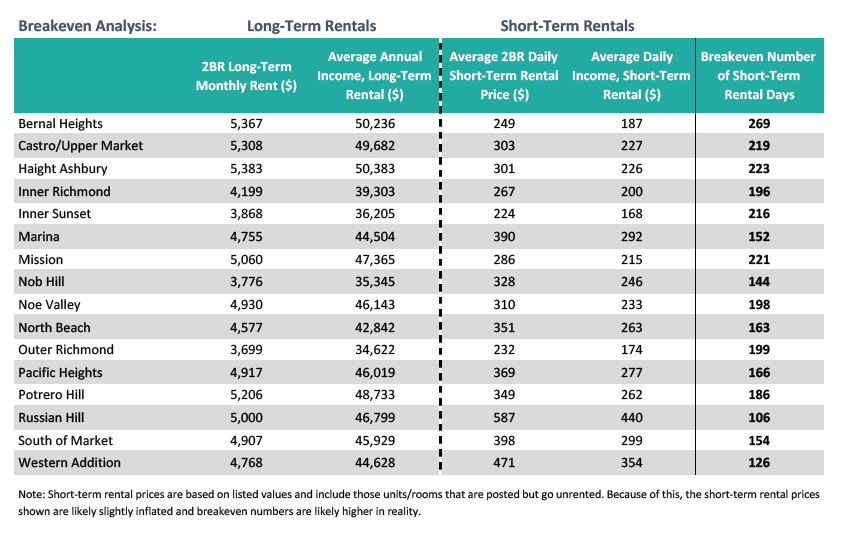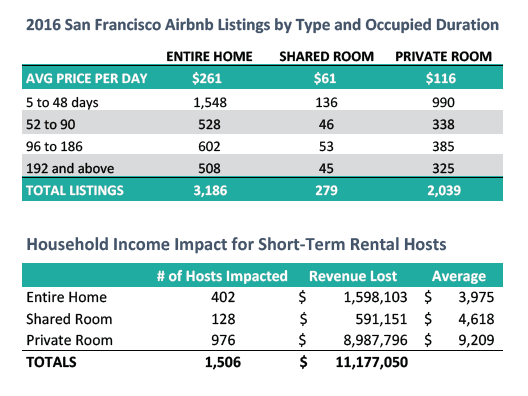Limits on Homesharing
As San Francisco grapples with its housing affordability crisis, short-term rentals—like those facilitated by homesharing sites Airbnb, FlipKey, and HomeAway—have come under heavy scrutiny from housing advocates and policymakers.
Short-term rentals, or the concept of homesharing, have been subject to numerous attempts at regulation. They were first regulated in San Francisco in 2015 when the Board of Supervisors passed a law limiting homesharing to 90 days per year when the host is not present. This existing law has no cap on the number of days a private or shared room in a larger unit (where the host is present) can be rented.
In mid-October, San Francisco Board of Supervisors President London Breed introduced stricter legislation that would impose a 60-day cap on the total number of days a housing unit can be rented out as a short-term rental. The 60-day cap would apply to all types of rentals, regardless of whether the host is present or not.
As a follow-on to our recent report, Solving the Housing Affordability Crisis, the Limits on Homesharing white paper analyzes the effects of the proposed 60-day cap on San Francisco’s supply of housing and on the income generated by its residents through homesharing.

We estimate that a 60-day cap will have no impact on housing supply when compared to the current policy. Market conditions in the majority of San Francisco neighborhoods require a two-bedroom unit to be rented in the short-term market for over 150 days per year to make homesharing a viable option over a traditional long-term lease. Because the current 90-day cap falls well below this threshold, hosts of entire homes that still choose to place units on the short-term rental market must be subject to other constraints that would not be impacted by a new cap. These constraints might include a need to keep the unit available for personal use or an unwillingness to take on the burden of compliance with city rental regulations.
The lower cap will have income implications for 1,500 San Francisco households. We estimate that host households that would be regulated under the cap will lose an aggregate of $11 million in rental income per year. This income is key for many San Francisco households that rely on homesharing to make their rental and mortgage payments. With the loss of income, 300 San Francisco households will no longer be able to affordably live within the city as they will move above the 30% housing cost-to-income threshold that traditionally defines affordability.

